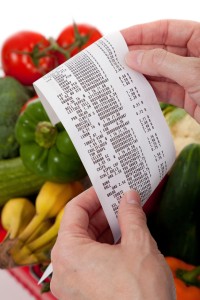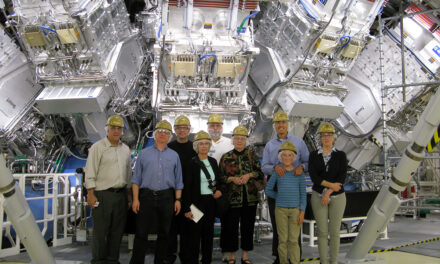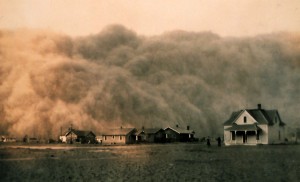- Tahoe’s Nevada Beach Tops the List of Hard-to-Book Campgrounds - 07/17/2024
- Cannabis Watershed Protection Program Cleans Up Illegal Grow Sites - 07/10/2024
- French Fire - 07/05/2024

Laboratory tests found high levels of BPA on 40 percent of thermal paper receipts sampled from major U.S. businesses and services, including McDonald’s, Chevron, CVS, KFC, Whole Foods, WalMart, Safeway and the U.S. Postal Service, among others. BPA in paper receipts also contaminates paper recycling and is showing up in napkins, toilet paper and other common papers with recycled content. Photo: iStockPhoto/Thinkstock
Is it true that Bisphenol A (BPA)—which is harmful to human health—was found to be present in retail cash register receipts and that, since those receipts get recycled, the chemical may also be present in toilet paper and other paper products? — Jocelyn Mitchell, via e-mail
Many of us already know the risks associated with regular use of products containing the plastic hardener and synthetic estrogen Bisphenol A (BPA)—and have switched over to BPA-free water and baby bottles and food storage containers. But the recent revelation that many of the receipts handed around every day in the U.S. contain the chemical has been a real shocker to those already worried about BPA exposure.
Many thermal papers used in the U.S.—receipts, event tickets, labels—contain so-called “free” BPA (that is, not bound into resin or plastic), which helps “develop” the inks to make the printed information visible. “While there is little concern for dermal absorption of BPA, free BPA can readily be transferred to skin and residues on hands can be ingested,” reports the U.S. Environmental Protection Agency (EPA).
Laboratory tests commissioned by the non-profit Environmental Working Group (EWG) and carried out by the University of Missouri Division of Biological Sciences Laboratory in 2010 found high levels of BPA on 40 percent of receipts sampled from major U.S. businesses and services, including McDonald’s, Chevron, CVS, KFC, Whole Foods, WalMart, Safeway and the U.S. Postal Service, among others.
“The total amounts of BPA on receipts tested were 250 to 1,000 times greater than other, more widely discussed sources of BPA exposure, including canned foods, baby bottles and infant formula,” reported EWG. Wipe tests conducted by the lab easily removed BPA “indicating that the chemical could rub off on the hands of a person handling the receipt.”
While BPA contamination of food is still a bigger problem, says EWG, a large number of Americans—especially the seven million who run cash registers—are nonetheless exposed to additional amounts of BPA through handling receipts. An EWG analysis of U.S. Centers for Disease Control and Prevention data found that retail workers carry an average of 30 percent more BPA in their bodies than other adults.
Another more exhaustive study of BPA in thermal paper receipts and 14 other types of papers found the chemical in a whopping 94 percent of samples from the U.S., Japan, Korea and Vietnam. The State University of New York researchers behind the study, which was published in September 2011 in the peer-reviewed journal Environmental Science & Technology, estimate that receipts and other thermal paper products contribute around 33.5 tons of BPA to the environment in the U.S. and Canada each year. Even more disturbing was their finding that BPA in thermal paper receipts also contaminates paper recycling and is showing up in napkins, toilet paper and other common papers with recycled content.
On a more encouraging note, Wisconsin’s Appleton Papers, the world’s largest thermal paper maker, removed BPA from its products in 2006. And the EPA has since launched a program to evaluate the safety and availability of alternatives to BPA in thermal paper. Public health advocates and environmentalists, of course, would like to see BPA phased out entirely.
CONTACTS: EPA, www.epa.gov/oppt/existingchemicals/pubs/actionplans/bpa_action_plan.pdf; EWG, www.ewg.org; “Widespread Occurrence of Bisphenol A in Paper and Paper Products: Implications for Human Exposure,” Environmental Science & Technology, www.pubs.acs.org/doi/abs/10.1021/es202507f.
EarthTalk® is written and edited by Roddy Scheer and Doug Moss and is a registered trademark of E – The Environmental Magazine (www.emagazine.com). Send questions to: earthtalk@emagazine.com. Subscribe: www.emagazine.com/subscribe. Free Trial Issue: www.emagazine.com/trial.













